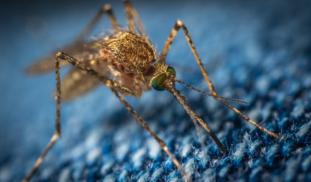Please wait...
About This Project
As of mid-2019, 87 countries have had or still have Zika cases, underlining the importance of this infectious disease. Zika virus can infect the uterus and later infect the infant during pregnancy, causing neurodevelopmental defects at birth. This study will model Zika infection in the lab using uterine mini-organs. We hypothesize that our specific antibodies can neutralize Zika virus in the uterus and thus prevent later transmission from pregnant mother to unborn child.

Browse Other Projects on Experiment
Related Projects
Disrupting cancer cell signaling through drug discovery
Most cancer-related deaths are caused by metastasis, the spread of cancer cells to distant tissues. This...
CaniSense– AI-powered blood test for early cancer detection in dogs
Cancer is the leading cause of death in dogs, yet no reliable methods for early screening exist. At testblu...
Shutting down cancer’s recycling system with exosome-based therapy
Pancreatic cancer is one of the deadliest cancers because its cells survive by recycling their own components...



